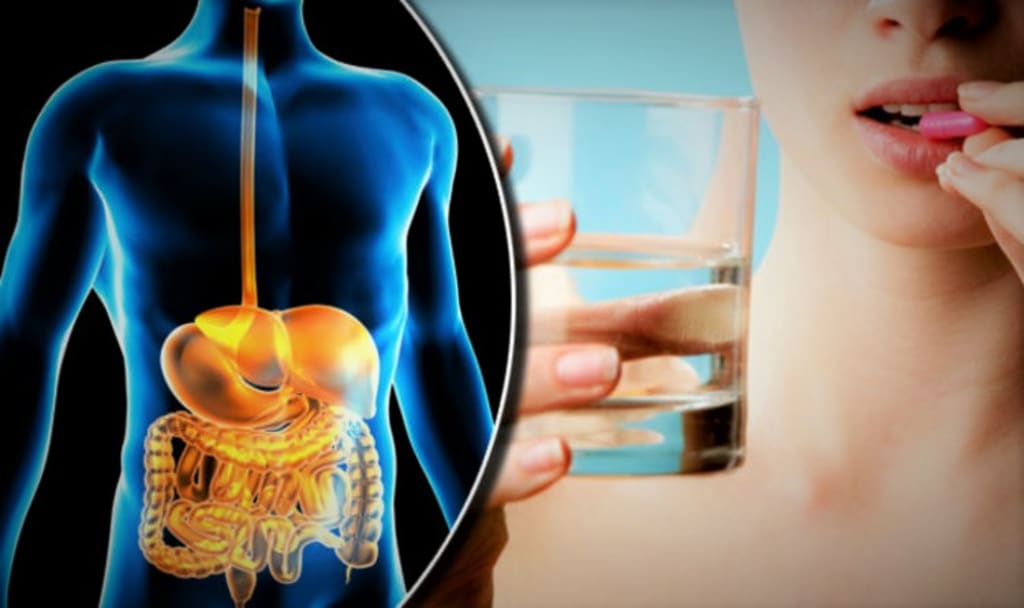How Does Your Body Process Medicine?
What Actually happens

How Does Your Body Process Medicine?
Have you ever been curious about what happens to a painkiller, such as ibuprofen, once it enters your body? These medications can provide relief for various ailments like headaches, sore backs, and sprained ankles, but have you ever wondered how they reach their intended destination? The answer lies in their journey through your circulatory bloodstream, racing against organs and molecules designed to eliminate foreign substances. This process commences in your digestive system. For example, when you swallow an ibuprofen tablet to alleviate a sore ankle, the tablet starts to break down in your stomach's acidic fluids within minutes. The dissolved ibuprofen then travels to the small intestine and crosses the intestinal wall into a network of blood vessels, which eventually lead to a vein carrying the drug-laden blood to the liver.
In the liver, the blood and its drug molecules encounter enzymes that attempt to neutralize the ibuprofen molecules. Some of the ibuprofen may be damaged and transformed into metabolites, which might lose their pain-relieving effectiveness. However, most of the ibuprofen passes through the liver unaffected and continues its journey through veins, entering the body's circulatory system. Approximately half an hour after ingestion, a portion of the ibuprofen dose has already reached the circulatory bloodstream, traveling through the body's various organs and tissues, including the heart, brain, and kidneys. It eventually circulates back through the liver.
When the ibuprofen molecules encounter areas where the body's pain response is active, they bind to specific target molecules involved in that process. Painkillers like ibuprofen hinder the production of compounds that transmit pain signals, leading to an increased pain-relieving effect that peaks within one or two hours. Afterward, the body efficiently eliminates ibuprofen, with the blood concentration decreasing by approximately half every two hours on average. When the ibuprofen molecules detach from their targets, they re-enter the systemic bloodstream. In the liver, a small fraction of the drug converts into metabolites, which are later filtered out by the kidneys and excreted in the urine.
These fundamental steps are similar for any orally administered drug, but the rate and amount of medicine reaching the bloodstream can vary based on the specific drug, individual, and method of administration. Dosing instructions on medication labels are helpful but are based on averages from a sample population and may not precisely represent every consumer. Finding the correct dosage is crucial because too low a dose won't be effective, while an excessive dose can be toxic, a principle applicable to any drug. Determining the right dosage for children can be particularly challenging due to rapid changes in their bodies and how they process medicine. Factors like genetics, age, diet, disease, and pregnancy can influence the body's efficiency in processing medication. While the future may involve personalized medicine based on routine DNA tests, for now, it is best to read the label, consult your doctor or pharmacist, and adhere to the recommended dosage and timing.
Medicines exert their effects on the body by interacting with specific receptors or enzymes that control cellular functions. This interaction is analogous to a lock and key mechanism, where only substances that perfectly fit can bind to these receptors or enzymes. Additionally, medicines can combat invading microorganisms that cause infections, either by eliminating or inhibiting the growth of bacteria or viruses.
Furthermore, medicines play a crucial role in treating cancer by targeting abnormal cells. They can directly affect cancer cells, hindering their division, or boost the immune system to battle them. Moreover, these medications can address deficiencies in essential substances like hormones or vitamins by supplementing or mimicking the natural compounds that might be lacking or insufficient in the body.
Finally, medicines have the capacity to modify cellular activity by altering chemical signals or pathways that regulate cell function. This way, they can influence and optimize cellular behavior to restore health or alleviate symptoms.
About the Creator
ABC Concepts
In this beautifully woven tapestry of creativity, I cherish words, colors, & forms. As a writer, vibrant threads of inspiration fuel every piece of work.
Enjoyed the story? Support the Creator.
Subscribe for free to receive all their stories in your feed. You could also pledge your support or give them a one-off tip, letting them know you appreciate their work.





Comments
There are no comments for this story
Be the first to respond and start the conversation.